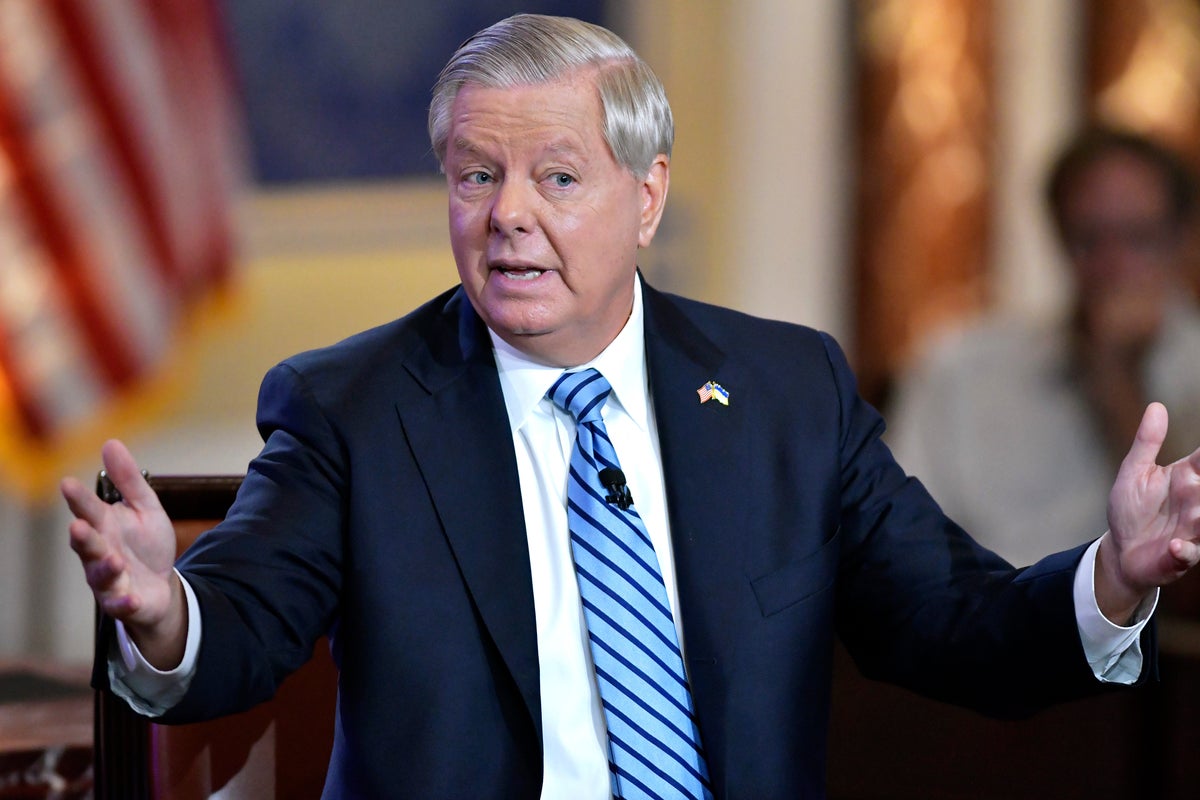
A judge in Georgia has ordered US Senator Lindsey Graham to testify in front of a grand jury as part of an investigation into Donald Trump’s attempts to subvert the outcome of the 2020 presidential election by pressing Georgia officials to manipulate the results.
On 11 July, Fulton County Superior Court Judge Robert McBurney ordered that the Republican senator from South Carolina must testify on 2 August as a “necessary and material witness” to the grand jury probe.
Attorneys for the senator previously told The Independent that he will not comply with a grand jury subpoena, claiming that Fulton County investigators told him he is “simply a witness” and “neither a subject nor target of the investigation” and dismissed the probe as “all politics” and a “fishing expedition”.
The attorneys also accused Fulton County DA Fani Willis “working in concert with the January 6 Committee in Washington”, a parallel investigation into the events surrounding the attack on the US Capitol, fueled by Mr Trump’s baseless election fraud narrative.
“Any information from an interview or deposition with Senator Graham would immediately be shared with the January 6 Committee,” his attorneys claimed.
Mr Graham has been asked to testify following two phone calls he made in November 2020 to Georgia Secretary of State Brad Raffensperger, in which he asked Mr Raffensperger to reexamine “certain absentee ballots cast in Georgia to explore the possibility of a more favourable outcome for former President Donald Trump.”
The Independent has requested comment from Senator Graham’s office.
The grand jury probe had previously issued subpoenas for Trump allies Rudy Giuliani and John Eastman, among others, as part of the district attorney’s wide-ranging inquiry into Mr Trump’s post-election efforts in the state, which Joe Biden definitively won.
Her investigation also includes the phone call on 2 January, 2021 between then-president Trump and Mr Raffensperger, the abrupt resignation of the US attorney in Atlanta on 4 January, 2021, and comments made during the state’s 2020 legislative sessions during committee hearings about the election.
In a taped call with Mr Raffensperger, recordings of which were first obtained by The Washington Post, Mr Trump said: “I just want to find 11,780 votes, which is one more than we have.”
Mr Trump suggested that the secretary of state and and his chief counsel could be criminally prosecuted if they did not follow through.
“You know what they did and you’re not reporting it,” the former president said during the call. “You know, that’s a criminal – that’s a criminal offence. And you know, you can’t let that happen. That’s a big risk to you and to [Ryan Germany], your lawyer. That’s a big risk.”
In her request to judges for a grand issue probe earlier this year, Ms Willis said the grand jury will have “an investigatory focus appropriate to the complexity of the facts and circumstances involved” while “a significant number of witnesses and prospective witnesses” have refused to comply “absent a subpoena requiring their testimony”.
A special grand jury cannot issue indictments but may subpoena witnesses, produce documents, and investigate other offices as part of the probe.





